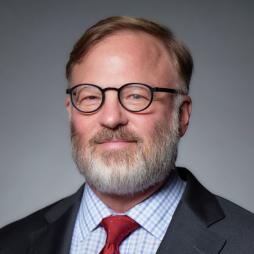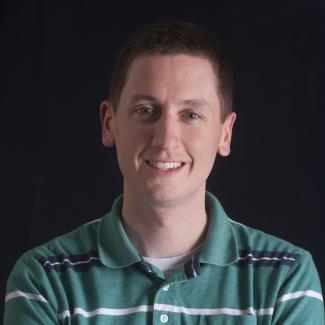
Jim Leipold: Career Insight to Help the Next Generation of Law Grads
By Noah Austin

Jim Leipold has made a career of understanding the challenges that law school graduates face when they hit the job market. As a senior advisor for LSAC, he focuses on Legal Education Consulting (LEC), an initiative that develops custom solutions to help law schools achieve their institutional goals. In that role, he’s translating his experiences and insight into knowledge for law schools to even better support their graduates.
Those experiences include Leipold’s circuitous route to finding his place in the world of law. “It wasn’t a direct path,” he says. “In retrospect, it was a great career path, but I didn’t set out to get where I was going.” That’s true of many law school graduates, who might struggle to find employment or try various roles in the industry before finding one that feels right. Through his work with LEC, Leipold is helping law schools ensure their graduates are well equipped to navigate the job market and profession.
That work is the continuation of a long history. For more than 18 years, Leipold led the National Association for Law Placement (NALP), which works to promote fair and ethical hiring processes for law students and lawyers, support professional development opportunities for legal professionals, and advocate for a diverse and inclusive legal profession. And this week, he’s returning to NALP’s Annual Education Conference in Boston in his LSAC role.
The conference, Leipold says, is a chance to introduce people to an initiative that fits perfectly with his passion for improving the legal education landscape. “I think LEC’s services provide a really valuable resource for law school deans,” he says. “We have built this team of experts, and we can come in from the outside and provide some guidance and support.”
Leipold has roots in the Midwest but grew up in Brussels, Belgium, while his dad was working in Europe. He applied to colleges overseas but ended up attending Brown University. When he graduated in 1984, the economy was booming and his peers were going into fields such as consulting and finance. “I didn’t want to do any of that,” he says, “so I went to Alaska and taught high school in a rural Indigenous community in the middle of nowhere for a while” — an experience, he adds, that exposed him to the challenges faced by Indigenous communities.
At one point, when Leipold was considering going back to school for library science, he was reading The Chronicle of Higher Education and saw that the University of Vermont was hiring in undergraduate admission, with a focus on international recruitment. “I was like, bingo,” he recalls. “I lived overseas. I could do that. And I knew what admissions was.”
His law school journey was spurred by a move to Philadelphia, where his partner was completing a post-doctorate fellowship. “I had to figure out what I wanted to do,” he says, “and I knew I didn’t want to be a doctor and I didn’t want an MBA, so I ended up in law school.” That was at Temple University’s Beasley School of Law, from which he graduated in 1993.
“I loved law school, and I excelled at it,” he says. “It was a great luxury to be back in the classroom full time after working for six years.” And the experience also filled in some of the missing pieces in his understanding of “how America works — or was supposed to work in an ideal setting.”
Leipold graduated during a major slowdown in the legal industry, and with student loan payments looming, he took a state court clerkship and made ends meet by reading admission files from the Temple law school on the side. That led to his hiring as the school’s director of admissions, and in that position, he became active as an LSAC volunteer on several committees, including the Services and Programs Committee’s first LGBTQ subcommittee. “We put together some of the early candidate outreach about LGBTQ candidates and their experience in applying to law school,” he says. “Law schools were just getting comfortable with saying those words out loud and in their materials. It’s hard to imagine now, but it was a different time.”
Eventually, Leipold moved to LSAC full time, in a position overseeing law school services and programs. And after a few years, the opportunity to lead NALP came along. “I didn’t have a ton of leadership experience, and I was young,” he says. “I thought it was a long shot, but it was a perfect fit, and it allowed me to use my skills in the best way possible.”
He saw NALP through economic ups and downs, including the recent pandemic, and he says he’s proud of the continuing professional education and valuable research it provided during his tenure. “It was an ideal platform for championing diversity and equity,” he says. “Because we had all the data, and we could hold the mirror up to the profession and say, ‘See? You think you’re doing a good job. But look at African-American women, [for example,] and what’s happening here.” The patterns he saw then, he adds, are still in play today.
It was important work, but 18-plus years is a long time, and Leipold felt it was time for new leadership at NALP. Coming to LSAC, he says, was a logical next step. “I wanted to take all this expertise and use it to help others and other organizations,” he says. “I had, kind of by default and timing and experience, become the country’s leading expert on law school graduate employment in the marketplace. That’s a tiny, tiny bit of expertise, but it was mine, and I had earned it over almost 20 years in the trenches.”
Leipold is now focused entirely on helping law schools. Every school has unique challenges, which is why LEC does what Leipold calls “bespoke work” to identify those challenges and design a solution that fits perfectly. On one recent project, Leipold’s team worked with a school that had merged two campuses into a single law school and was trying to work through staffing and finance challenges; on another, it tackled factors that were affecting a school’s U.S. News and World Report rankings.
In both cases, Leipold says, having an outside voice in the process was helpful for the schools. “I think American law school deans have some of the very hardest jobs in the country,” he says. “And it’s sometimes easier for them to hear from someone on the outside, not just internal voices.”
This week’s visit to the NALP conference is a chance for Leipold and other LSAC representatives to build awareness of the LEC practice among NALP members. "We are taking a team of senior leaders from LSAC, and we're excited about sharing a little bit about all of the good work LSAC has been doing," he says. "And, to be honest, I'm looking forward to seeing old friends and colleagues."
If you’d like to meet Leipold at the conference, you can find him at the LSAC booth (410) in the exhibit hall. And for more information about Legal Education Consulting, visit LSAC’s website.

